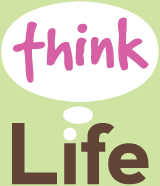What Does Your Body Say?
Love is the absence of judgement.
Dalai Lama
“You’re a disgrace to your profession!” The woman marched towards me with a scowl on her face. I glanced back over my shoulder. Is she talking to me? She angrily waved her hands in the air exclaiming, “How dare you hand out this poison!” “This isn’t healthy eating!” Yup, she’s definitely talking to me. She let loose a verbal torrent of disapproval; after which she stomped off into the crowd. The ferocity of her outburst left me speechless.
This incident occurred years ago at a health show where I had set up a booth. I had just launched my practice as a wellness coach and consultant and was promoting the concept of mindful eating. What was the “poison” that the woman had vehemently condemned? It was a tiny bowl of individually wrapped squares of 72% dark chocolate. Chocolate is a food that I regularly use as a mindful eating teaching tool.

The irate woman – I get her. I get her because I can recall a time in my life when I had a similar mindset. For sixteen years, I followed a vegetarian diet. During this period, I was convinced that vegetarianism was the ultimate eating plan – for everyone. It’s a wonder that family and friends still speak to me. As my body grew older, it developed certain health needs, different tastes and new cravings – it asked for change. Despite initial misgivings, I learned to mindfully listen and accept what it had to say.
My experience at the health show reinforced for me that there’s “no one-size-fits-all” approach to healthy eating. No one can tell us what and what not to eat. No one can tell us what we should feel when we eat. Our eating experience is uniquely our own. Our wellness needs are uniquely our own. Mindful eating is about allowing our own body’s innate wisdom to guide us. Our body speaks to us. When we stop to listen, we often discover that it has something important to say – “I need sleep, I don’t feel well, I’m hungry, or I’m not hungry.”
I believe that being rigid or dogmatic about what is “good” versus “bad” food is as potentially harmful as eating junk food daily and that an obsession with only consuming “healthy” or “pure” food is essentially another form of disordered eating behaviour. My philosophy is that if we’re eating nutritiously 90% of the time, it’s okay to indulge with the other 10%. I know from experience, that self-deprivation often leads us to binge on the foods we wish to curb. Eliminating what we enjoy is tough to maintain, which makes eating our favourites in moderation more realistic. It’s about balance.
Whatever eating plan we may choose for ourselves, it’s always good practice to heed our body’s natural wisdom and remember that it’s not enough to eat simply for health; it’s also important that we genuinely enjoy what we eat. Our body, mind and spirit will thank us for it.
What does your body say?

